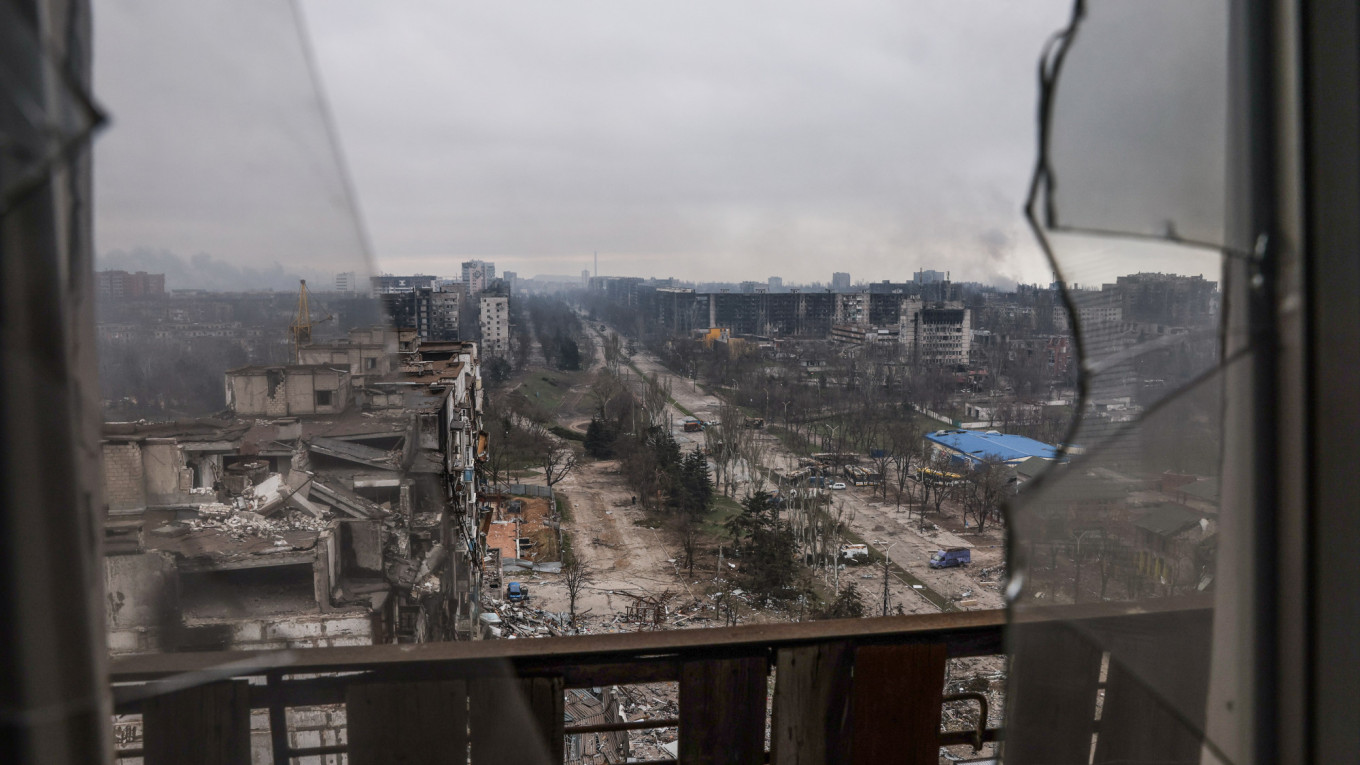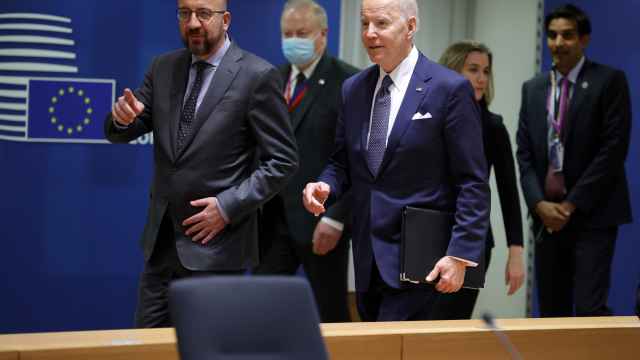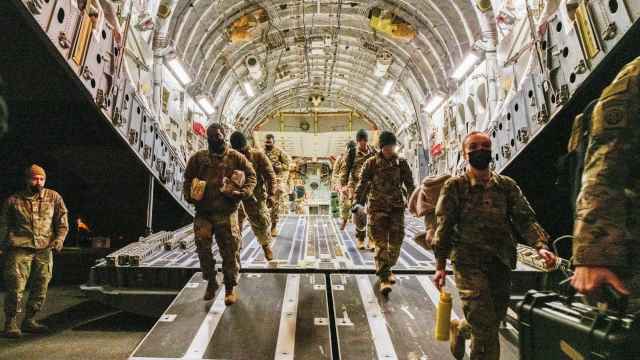The U.S. balancing act in providing substantial military aid to Kyiv without provoking nuclear-armed Moscow into a dangerous reaction has grown far more difficult as allegations mount of abuses and atrocities by Russian troops.
Since the Russian invasion on February 24, the United States has provided Ukraine with a flood of light arms, like the shoulder-fired Javelin anti-tank missiles that have become a symbol of Ukrainian resistance.
But it has also refused to provide heavy weaponry like combat aircraft which could be seen as escalating the conflict and increasing the risk of a nuclear confrontation with Russia — a prospect U.S. President Joe Biden has likened to a potential "World War Three."
American officials justifying the limited range of weapons point out that the Ukrainians are not trained to use many U.S. technologies.
Instead they have urged former Soviet-bloc countries to send more familiar Russian-made weaponry to Ukraine.
But as haunting reports emerge of alleged war crimes by a frustrated Russian army, the Pentagon has come under growing pressure from both Republican and Democratic lawmakers to do more to help Kyiv repel the invaders.
"It seems to me that often our strategy seems to be somewhat schizophrenic — we want the Ukrainians to defeat Russia, but we're afraid that pushing Putin into defeat may provoke escalation," said Senator Richard Blumenthal, an influential Democrat, during a hearing with top Pentagon officials.
And Republican senator Kevin Cramer, questioning why the Pentagon failed to back a Polish proposal to provide MiG-29 combat jets to Kiev, asked, "Do you have any evidence Vladimir Putin has ever worried that his massacre of women and children civilians would be escalatory?"
Training and logistics
Outside a NATO-enforced closure of Ukrainian airspace, raising the risk of direct confrontation with Russian planes, the Pentagon's options are limited.
Heavy U.S. weaponry is not compatible with that used by the Ukrainian army, and training Ukrainian troops in their use would take them off the battlefield for weeks just as Moscow is planning a major assault in the southeastern Donbas region.
U.S. Abrams tanks, for example, have turbo engines that consume huge amounts of fuel, requiring enormous logistics support, and their laser-guided targeting systems require extensive training, Pentagon officials say.
Similarly, the A-10 "Warthog" combat aircraft, mentioned by Blumenthal as a possible major addition to U.S. military aid to Ukraine, is known for its reliability and durability.
But pilots would require weeks of training, and an entire logistical chain would be needed to maintain the aircraft.
In response to the criticism, the White House has published an exhaustive list of the military material furnished so far to Ukraine.
It includes: 1,400 Stinger anti-aircraft systems, 5,000 Javelin anti-tank missiles, 7,000 anti-tank weapons of other models, several hundred Switchblade drones, 7,000 assault rifles, 50 million rounds of various ammunition, 45,000 sets of bullet-proof vests and helmets, laser-guided rockets, Puma drones, anti-artillery and anti-drone radars, light armored vehicles, secure communication systems and anti-mine systems.
On Friday, Pentagon spokesman John Kirby angrily rebuffed the criticism, saying, "We just fundamentally bristle at the notion that we're not doing enough."
Biden has released $2.4 billion in military aid to Kiev, "which is almost as much as Ukraine's defense budget," the spokesman said.
Pointing out that the U.S. had also increased its military manpower in Europe from 80,000 to 100,000 and had sent a Patriot air defense battery to Slovakia to compensate for its having sent a Russian-made S-300 system to Kyiv, Kirby described the effort as "unprecedented."
"No other country can do that," in terms of logistics and supplies, he said.
"At the same time," he added, "we are mindful that Russia is a nuclear power."
A Message from The Moscow Times:
Dear readers,
We are facing unprecedented challenges. Russia's Prosecutor General's Office has designated The Moscow Times as an "undesirable" organization, criminalizing our work and putting our staff at risk of prosecution. This follows our earlier unjust labeling as a "foreign agent."
These actions are direct attempts to silence independent journalism in Russia. The authorities claim our work "discredits the decisions of the Russian leadership." We see things differently: we strive to provide accurate, unbiased reporting on Russia.
We, the journalists of The Moscow Times, refuse to be silenced. But to continue our work, we need your help.
Your support, no matter how small, makes a world of difference. If you can, please support us monthly starting from just $2. It's quick to set up, and every contribution makes a significant impact.
By supporting The Moscow Times, you're defending open, independent journalism in the face of repression. Thank you for standing with us.
Remind me later.






